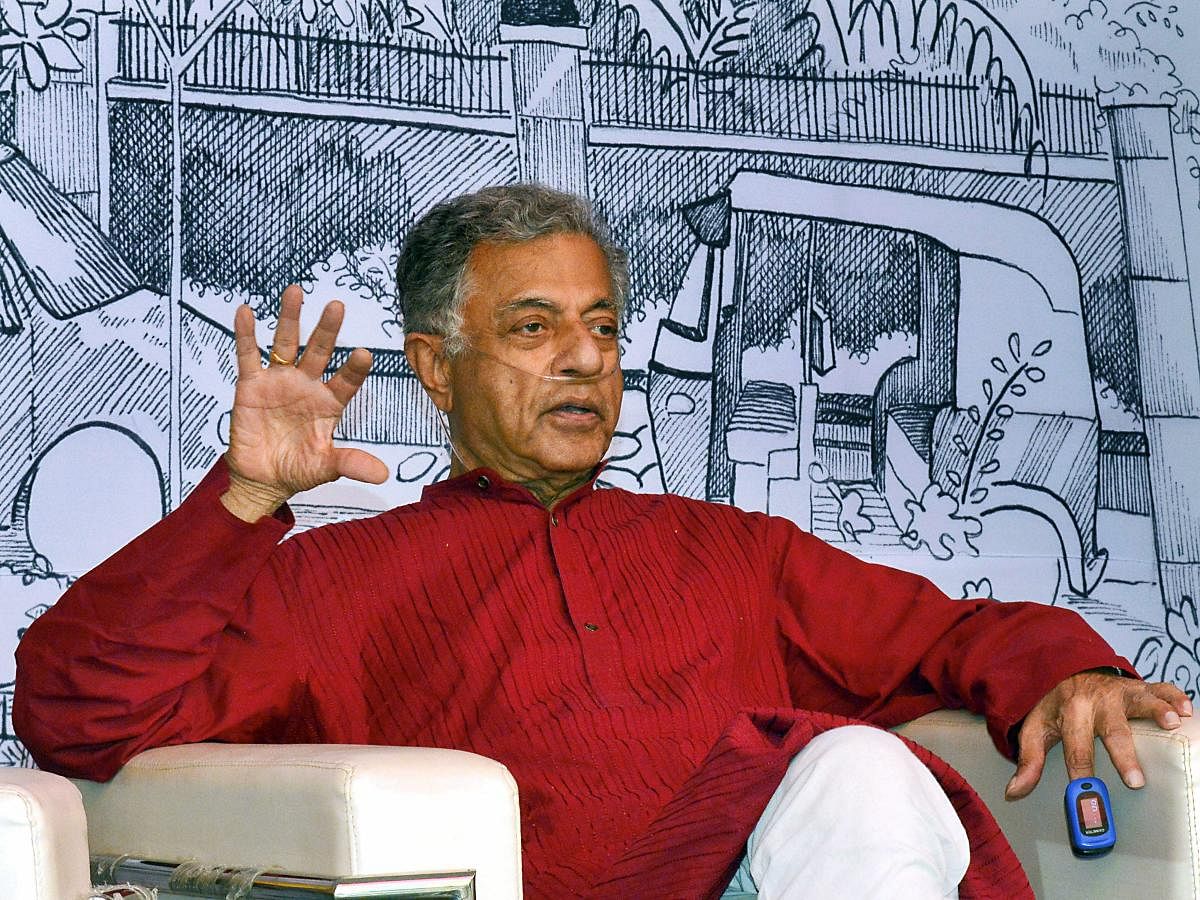
Jnanpith awardee and veteran playwright Girish Karnad passed away on Monday due to age-related illness in Bengaluru. He was 81. He breathed his last at his Lavelle Road residence. Karnad is survived by wife Saraswathi, son and daughter.
Girish Karnad is one of the eight authors in Kannada to bag country's elite Jnanpith Award for his contribution to drama.
Born on May 19, 1938, in Bombay Presidency, Girish Raghunath Karnad took an early interest in Marathi literature which nurtured his intellectual growth. His experiences at home, particularly the plight of his mother in the male-dominated family, made Karnad take a critical view of systems built on caste and religion.
After retirement, Karnad's father settled in Sirsi, where the young man was exposed to the art and culture of Yakshagana. After completing his BA in Mathematics and Statistics, Karnad went to Bombay on a fellowship where his exposure to modern theatre, from Bernard Shaw to Sartre, changed the course of his life. He went on to win many fellowships and scholarships, including the Rhodes.
His efforts to integrate traditional and modern theatre stand out as one of the major contributions to contemporary Kannada literature and culture.
Apart from Kannada, Karnad has also made notable contributions to Tamil, Telugu, Marathi and Hindi films. Nagamandala, Hayavadana, Tughlaq, Yayati, Broken Images, Ma Nishada, Kadu and Taledanda are some of his famous plays.
Karnad made his cinema debut in 1970 with Sandalwood's critically-acclaimed movie 'Samskara'. He was also seen in AK 47, Janumadatha, Kaanoora Heggadathi, Dheera Rana Vikrama, Neethanda Kaanike, Prathyartha and others. He was last seen in Salman Khan's Tiger Zinda Hai, the sequel to 2012-hit Ek Tha Tiger.
Karnad, who captured the imagination of an entire generation through the retelling of history, mythology and stories, was notable for the way he handled the rich past and heritage of Indian culture even as he criticised it. Such radical shifts made his plays a mirror to the aspirations and tribulations of the age.
As someone who believed in and worked for the multicultural identity of Indian society, Karnad stood against religious bigotry and opposed Hindutva. His activism landed him in controversies. The sensibility of the writer was visible in such moments as he stood against V S Naipaul.
Karnad's last rites will be held in Kalpalli electric crematorium, Bengaluru on Monday afternoon. As per his last wishes, the family has decided to not follow any religious and state honours during his last rites. His body will be kept at the crematorium for the public to see.